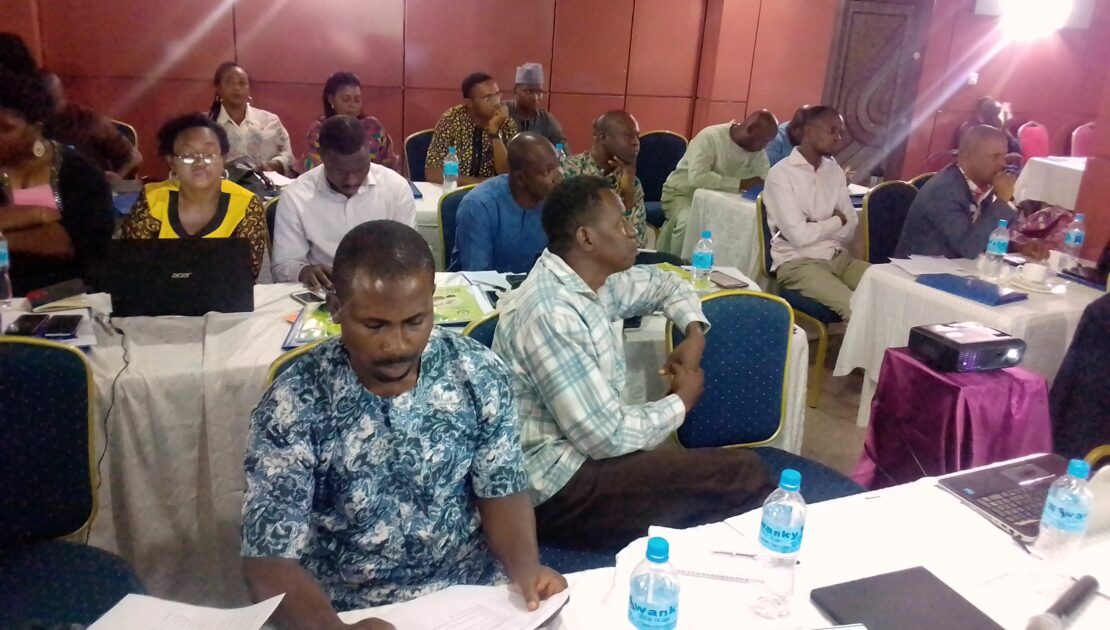FOR NIGERIAN NATIONAL PETROLEUM COMPANY LIMITED TO BECOME ONE OF THE BEST IN CLASS
-
July 24, 2022
- Posted by: Center for Social Justice

July 21 2022
Press Release
Centre for Social Justice (CSJ) welcomes the inauguration of the Nigerian National Petroleum Company (NNPC) as a Limited Liability Company by President Muhammadu Buhari on July 19 2022. This is in line with the provisions of the Petroleum Industry Act especially its S.53. The immediate fiscal implication of this inauguration is that NNPC Limited will continue in the recent tradition of the old NNPC as there will be no monthly revenue remittance from crude oil to share by the Federal and State Governments. It is only at the end of the financial year, when NNPC Limited trades profitably, that dividends would be declared for sharing by the Federating Units.
It appears from the large share capital base and assets to be inherited by NNPC Limited that it has the requisite capital to start business from a position of strength and further financial resources can be raised from the capital market and commercial sources. However, financial resources must be matched with human and managerial resources in terms of the composition of the board of directors and the personnel to lead and work for the company to become one of the best in class comparable to very successful national oil companies.
From the empirical evidence of the background and curriculum vitae of the board of directors of NNPC Limited, CSJ is not convinced that Nigeria has assembled its “first eleven” in the composition of the board. The role of a governing board in piloting the affairs of a company established for profit cannot be overstated. Furthermore, the employees of NNPC who have now been retained by NNPC Limited were not employed on the basis of merit and competence. Rather, the majority were hired through nepotism and inordinate opportuning. The deliverables and results achieved by the old NNPC bear irrefutable testimony to this assertion. As such, these employees cannot be the core human resources expected to turn-around the new NNPC for profitability. The inauguration of NNPC Limited comes at a time Nigeria has not been producing enough crude oil to meet its quota from the Organisation of Petroleum Exporting Countries (OPEC). Other OPEC countries have in the past exceeded their quotas and indeed have spare production capacity to produce beyond the quotas. It is expected and hoped that the launch of NNPC Limited would not just be a change in nomenclature but a radical move to reposition the company to produce enough crude oil to meet and even exceed Nigeria’s OPEC quota as well deliver profits commensurate with the quantum of available natural resources and
financial investments of its shareholder which is the Federation of Nigeria comprising of the Federal and State Governments.
CSJ recalls that the Federal Government has spent much of the nation’s resources and over 35 per cent of our foreign exchange earnings importing refined petroleum products. The existing refineries have become dysfunctional and despite several billions of dollars invested in turn-around-maintenance and refurbishing, no concrete results have emerged. CSJ further recalls that the claim for subsidy has ballooned from 35 million litres a day in the year 2015 to the present 65 million litres. The Federal Government has approval from the National Assembly to spend not less than N4trillion on fuel subsidy in 2022.
On the basis of the foregoing, CSJ therefore recommends:
- The immediate review of appointment of members of the board of directors of NNPC Limited to introduce world class Nigerian professionals with the requisite industry and corporate governance experience.
- NNPC Limited to do a staff audit and assessment to ensure that dead woods are flushed out of the system to pave way for the recruitment of world class Nigerian experts with deep knowledge and wide experience in the sector.
- If NNPC Limited is to make profit and declare dividends, schedule the moribund refineries immediately for privatisation or concession so as to take off loss making arms from the books of NNPC Limited.
- FGN to ensure that it delivers value for money in all the refineries it has spent tax payers’ money in their purported turn-around-maintenance.
- FGN to come clean and audit the actual fuel consumption in Nigeria so as to reduce the subsidy which is being paid from the proceeds of government borrowing.
Already, the FGN and States are facing severe fiscal constraints; FGN borrows to fund recurrent and capital expenditure as available resources are just enough to service debts. The profits expected from NNPC Limited at the end of the year will still be shared by the Federating Units and if the company is not properly managed, there will be nothing to share
